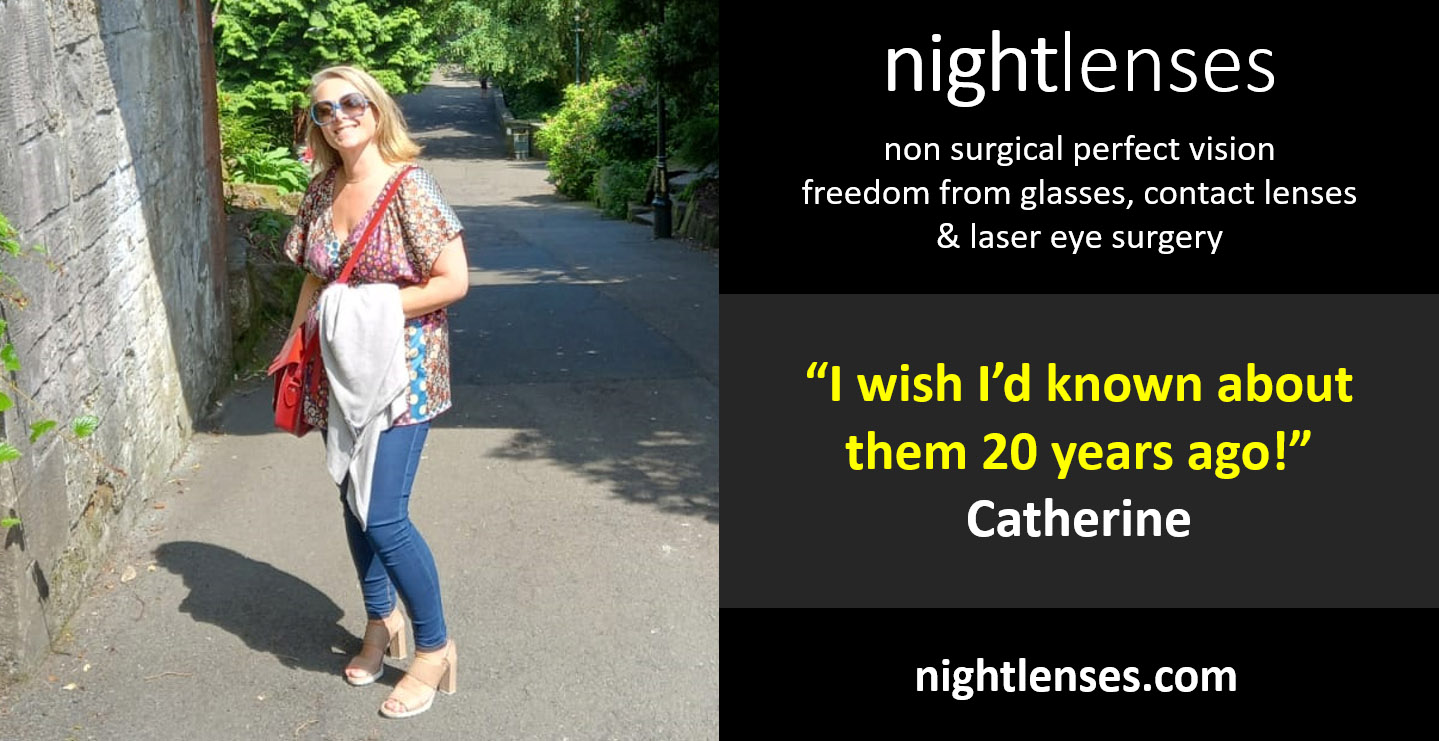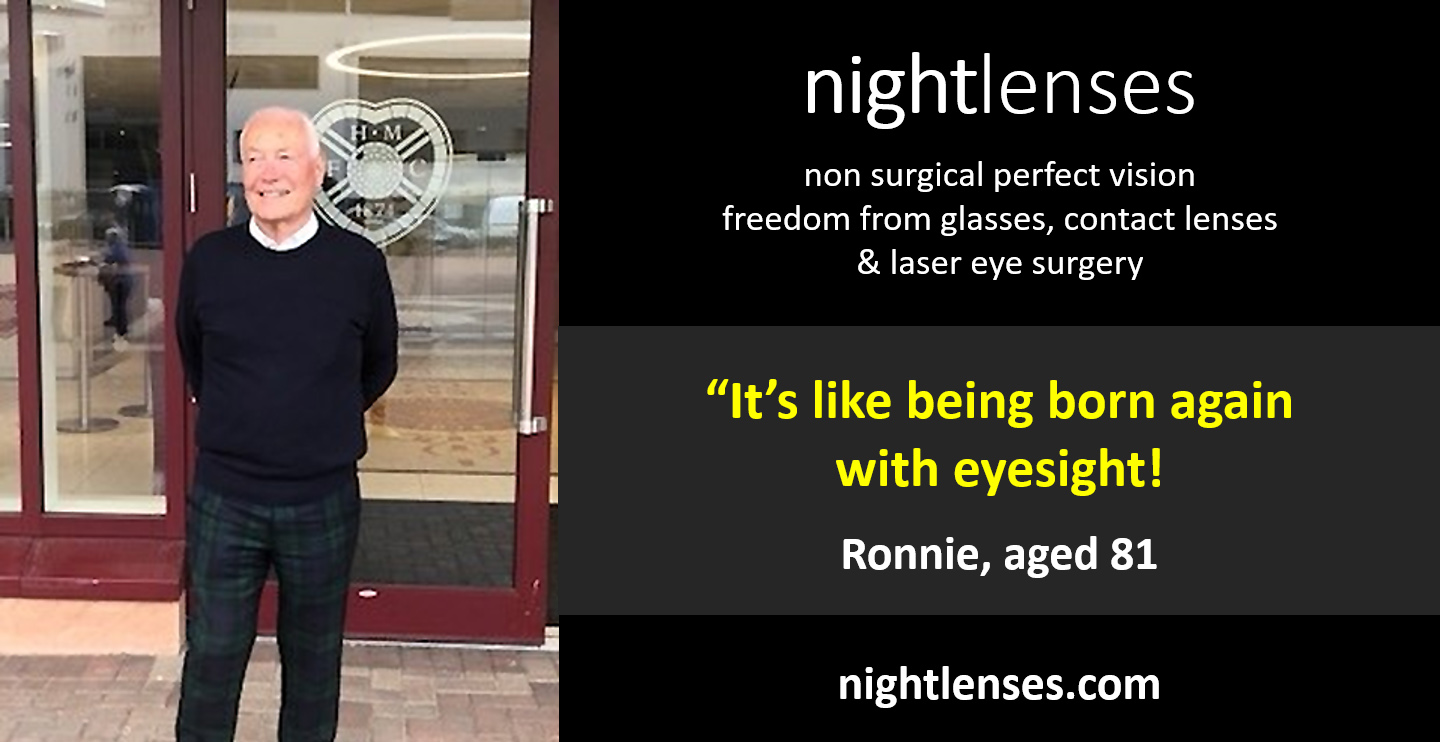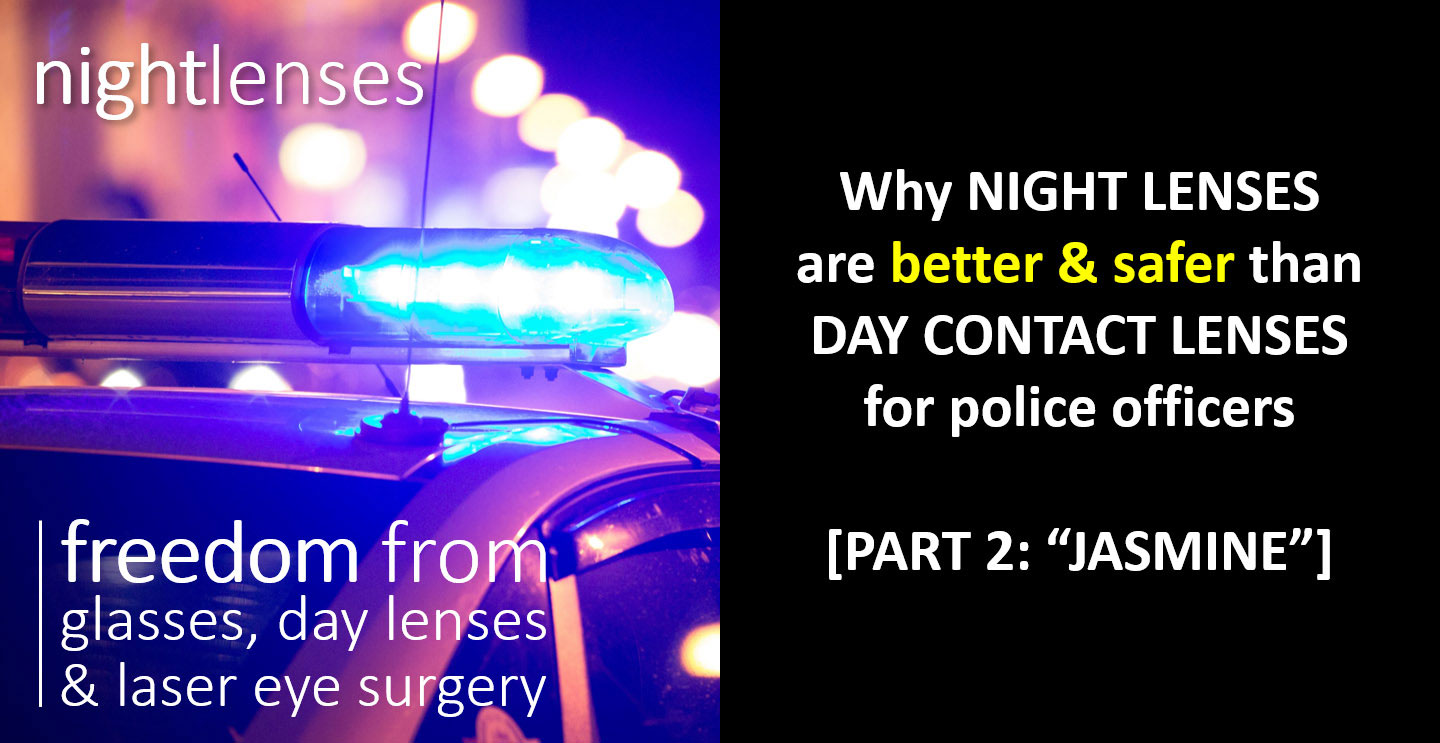Police
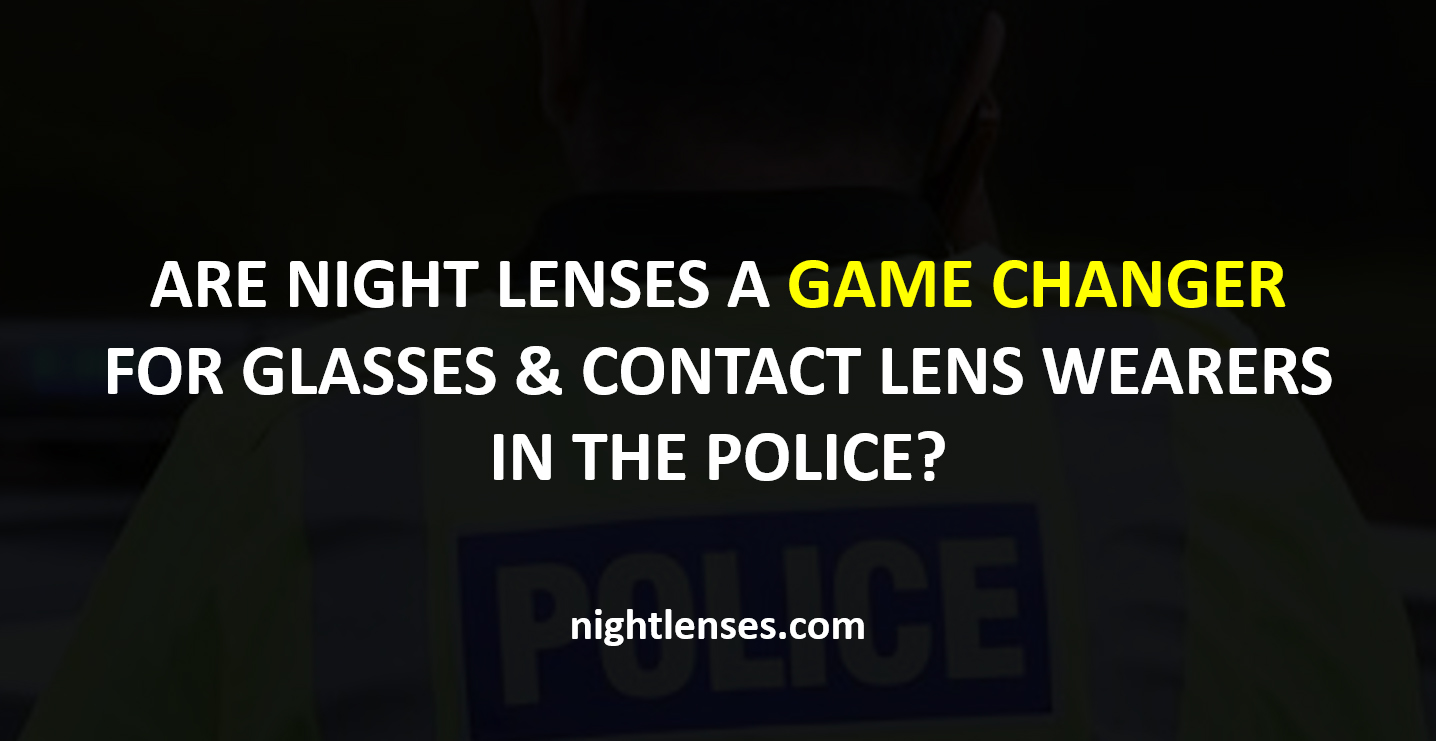
Are NIGHT LENSES a game changer for contact lenses & specs wearers in the Police?
GLASSES vs CONTACT LENSES vs LASER EYE SURGERY
For many short-sighted police officers on duty, the choice between glasses and contact lenses is an easy one. In situations that are violent, wet, steamy, or confined, glasses can easily get knocked off, broken, or rendered ineffective by steam, water, grease, or whatever else decides to coat the lenses at precisely the wrong moment. And dealing with fog on your glasses due to personal protective equipment (PPE) is a modern frustration.
It’s clear why contact lenses are the preferred alternative, or sometimes the only alternative for many officers, as the fear of laser eye surgery complications or the cost can make LASIK seem unattainable.
AT WORK: As most officers who wear contact lenses know, daily lenses come with their own set of problems. They can be dislodged in violent situations or affected by irritants like PAVA spray (putting you at risk). After long shifts, they tend to dry out and cause discomfort, affecting your focus and alertness. Contact lenses are easily irritated by dust in lofts during searches, sawdust, grit, sand, and airborne irritants, hampering your ability to perform your duties. If you need to wear a CBRN (Chemical, Biological, Radiological, Nuclear) suit, it requires specialized equipment.
OFF DUTY: They can fall out during intense exercise or sports, you need prescription goggles for swimming, they can become infected in hot tubs, and they limit spontaneous beach and pool activities on vacation. You constantly have to think about what you can or can’t do throughout the day.
But is there no alternative?
Wrong!

NIGHT LENSES are custom-made contact lenses that correct nearsightedness while you sleep. Just wake up, remove them, and enjoy perfect vision all day. No need for glasses or contact lenses during the day, and no need for laser eye surgery in the future. The future of eye care is seeing clearly without anything in your eye or on your face, without surgery. The future is here.
The science behind it is called Orthokeratology, or ‘Ortho-K’ lenses. They’ve been around for about 20 years now. Every night, as you sleep, the outer layer of cells on your cornea naturally sheds (similar to your skin). The new outer cell layer molds into the lens, shaping your cornea to enable natural and proper light focusing when you remove it in the morning, giving you perfect vision. It’s a harmless, non-permanent process that you simply repeat every night. [CLICK HERE to see a 1-minute demo of how they work].
No lenses in your eyes to dislodge during altercations, no issues with PAVA, dust, grit, etc. You can open your eyes underwater or in the shower, experience no dry or itchy eyes after long shifts, do an intense, sweaty HIIT class or workout, jump into the sauna, then the jacuzzi, and shower off without a second thought. You can have your face rubbed in the mud on the rugby field, swim freely, roll around on the beach with the kids, and spontaneously jump into the sea.
Be normal.
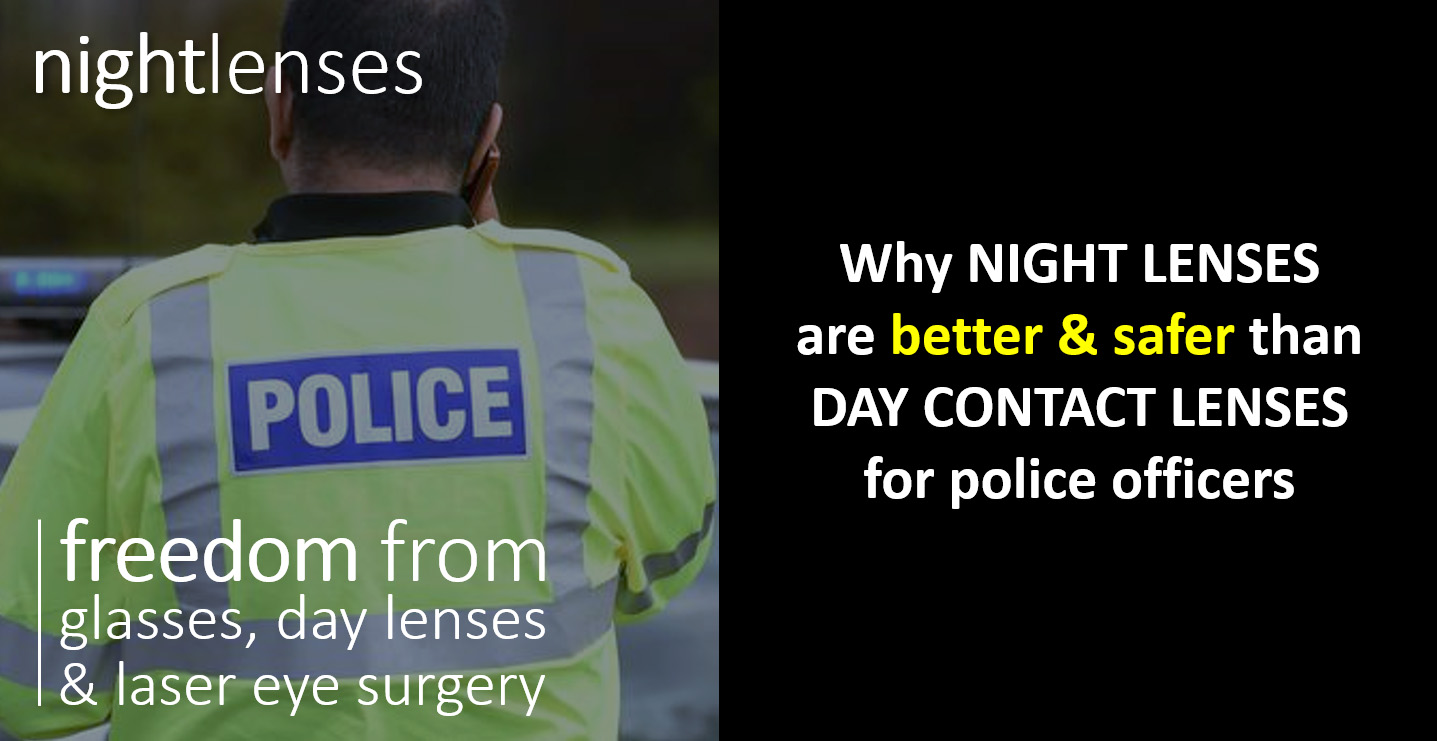
Below are 3 interviews we did with police officers who use night lenses, to give their colleagues who wear day lenses and specs an idea of what it’s about:
‘John’ was with TSG in Belfast. CLICK HERE for “John’s” story: glasses > contacts > night lenses
‘Jasmine’ holds a specialist role in The Met. CLICK HERE for “Jasmine’s” story: glasses > contacts > laser (lasted 15 years) > night lenses
“Sarge” – is a Sergeant in Birmingham’s City Centre police team. CLICK HERE for Sarge’s story: contacts > night lenses
John and Jasmine remain anonymous due to their roles, and Sarge prefers to stay anonymous as well. All three agree that, in their opinion, night lenses are better and safer for short-sighted police officers (under -6D) than daily contact lenses and glasses.
- Cost: Equivalent to daily lenses
- Environmental Impact: Just two lenses to landfill per year (yay!) vs. 720+ daily lenses (boo!)
- Health & Safety: No issues since nothing is in your eyes, and the effect can last up to 48 hours without a top-up
- Cost to the Force (Supplement): Equivalent to daily lenses, with no extra spending on CBRN gear for contact lens wearers
- New and Unproven? Around for 20 years. In 2003, the first UK CE device. Widely used in the Netherlands and other countries. Recent growth in the UK.
- Can Kids Use Them? Yes. They can control myopia and reduce the risk of future eye diseases. WATCH: Rhys, age 8, sees clearly without glasses for the first time
- Does My Optician Offer Them? Many do – ask your optician about night lenses or find a fitting specialist below.
Head round this site for further info, stories and to find your nearest fitter, or quick links to the main t below
How do night lenses work – a simple, quick animation demo
Other night lens stories – world champion athlete, watersports, mums, dads and kids
Where is my nearest fitter?

